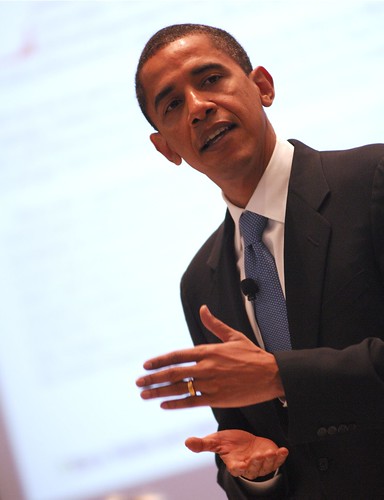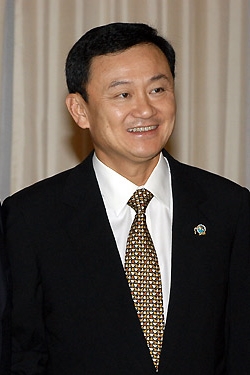 By all accounts, it appears President Barack Obama is planning to send more troops to Afghanistan. The only question now, it seems, is how many. According to a New York Times report, Defense Secretary Robert Gates, Admiral Mike Mullen, the chairman of the Joint Chiefs of Staff, and Secretary of State Hillary Clinton support a proposal that includes at least 30,000 additional American troops in Afghanistan. President Obama plans to consider four final options today as part of his ongoing deliberation over a new path for U.S. Afghan strategy. Three of the options include additional troop levels of 20,000 to 40,000. The number of troops in the fourth option has not been reported. British prime minister Gordon Brown, who has recently spoken with the U.S. president, told Parliament he believes President Obama will announce his decision “in a few days.” The pending decision comes as a new poll shows a majority of Americans, 56 percent, are against more American boots on the ground. A middle-of-the-road troop increase, which most analysts are saying Obama will choose, would push American troop levels to around 100,000.
By all accounts, it appears President Barack Obama is planning to send more troops to Afghanistan. The only question now, it seems, is how many. According to a New York Times report, Defense Secretary Robert Gates, Admiral Mike Mullen, the chairman of the Joint Chiefs of Staff, and Secretary of State Hillary Clinton support a proposal that includes at least 30,000 additional American troops in Afghanistan. President Obama plans to consider four final options today as part of his ongoing deliberation over a new path for U.S. Afghan strategy. Three of the options include additional troop levels of 20,000 to 40,000. The number of troops in the fourth option has not been reported. British prime minister Gordon Brown, who has recently spoken with the U.S. president, told Parliament he believes President Obama will announce his decision “in a few days.” The pending decision comes as a new poll shows a majority of Americans, 56 percent, are against more American boots on the ground. A middle-of-the-road troop increase, which most analysts are saying Obama will choose, would push American troop levels to around 100,000.
Tuesday’s naval skirmish between the two Koreas will not affect an American decision to send an envoy to North Korea, Secretary of State Hillary Clinton said on Wednesday. Speaking from Singapore, Clinton confirmed that the United States will still send Ambassador Stephen Bosworth, the U.S. special representative for North Korea policy, to meet with North Korean officials, as had been announced on Tuesday. Bosworth was slated to visit Pyongyang “in the near future” to try to persuade it to return to six-nation nuclear disarmament talks, which are currently at an impasse. But heightened tensions in the region, following an exchange of shots between the navies of North and South Korea along their disputed Yellow Sea border, cast doubts on whether the trip would proceed. Clinton, however, emphasized that the United States was moving ahead with its plans to send Bosworth. “We are obviously hoping that the situation does not escalate and we are encouraged by the calm reaction that has been present up until now,” Clinton said of Tuesday’s clash, the first gunfire exchanged between the rival Koreas in seven years. “But this does not in any way affect our decision to send Ambassador Bosworth. We think that is an important step that stands on its own.” Bosworth is expected to make the landmark trip before the end of the year.
 Cambodia rejected Thailand’s request to extradite former Thai prime minister Thaksin Shinawatra on Wednesday, further straining diplomatic relations between the neighboring countries. Thaksin, who was ousted from his position as Thailand’s prime minister in a 2006 coup and convicted on corruption-related charges shortly thereafter, arrived in Cambodia Tuesday to begin a new post as economic adviser to the Cambodian government. Thai diplomats handed extradition papers to Cambodia early Wednesday. But Cambodia said it would not consider the request, as it views the charges Thaksin faces in Thailand to be politically motivated and therefore not covered by the two countries’ extradition treaty. “Thaksin’s conviction (was) caused by the coup in September 2006, when he was the prime minister of Thailand whom Thai people voted in with an overwhelming majority in accordance with democracy,” Cambodian foreign minister Hor Namhong told reporters. But Thailand has indicated that it may terminate its extradition treaty with Cambodia if Thaksin is not returned to serve his sentence, which could aggravate relations that are already deteriorating. Thailand has already withdrawn its ambassador from Cambodia over the Thaksin row, and has now decided to scrap plans for joint trade and oil ventures. Other countries, such as Indonesia, have called on the Association of Southeast Asian Nations (ASEAN) to help resolve the two nations’ disputes. “This spat, this division has to end,” Indonesia’s foreign minister Marty Natalegawa told reporters Wednesday. “We must return to the usual path, which is friendship within ASEAN.” Thai Prime Minister Abhisit Vejjajiva is due to chair a meeting between ASEAN leaders and U.S. President Barack Obama later this week.
Cambodia rejected Thailand’s request to extradite former Thai prime minister Thaksin Shinawatra on Wednesday, further straining diplomatic relations between the neighboring countries. Thaksin, who was ousted from his position as Thailand’s prime minister in a 2006 coup and convicted on corruption-related charges shortly thereafter, arrived in Cambodia Tuesday to begin a new post as economic adviser to the Cambodian government. Thai diplomats handed extradition papers to Cambodia early Wednesday. But Cambodia said it would not consider the request, as it views the charges Thaksin faces in Thailand to be politically motivated and therefore not covered by the two countries’ extradition treaty. “Thaksin’s conviction (was) caused by the coup in September 2006, when he was the prime minister of Thailand whom Thai people voted in with an overwhelming majority in accordance with democracy,” Cambodian foreign minister Hor Namhong told reporters. But Thailand has indicated that it may terminate its extradition treaty with Cambodia if Thaksin is not returned to serve his sentence, which could aggravate relations that are already deteriorating. Thailand has already withdrawn its ambassador from Cambodia over the Thaksin row, and has now decided to scrap plans for joint trade and oil ventures. Other countries, such as Indonesia, have called on the Association of Southeast Asian Nations (ASEAN) to help resolve the two nations’ disputes. “This spat, this division has to end,” Indonesia’s foreign minister Marty Natalegawa told reporters Wednesday. “We must return to the usual path, which is friendship within ASEAN.” Thai Prime Minister Abhisit Vejjajiva is due to chair a meeting between ASEAN leaders and U.S. President Barack Obama later this week.
After a five-month delay, the Lebanese unity government held its first meeting and won support from governments around the world amid hope that the coalition would bring stability to the country. Lebanese prime minister Saad Hariri has been trying to form a functioning government since elections in June gave the Hezbollah opposition a share of the government. President Michel Suleiman finally approved the cabinet, which gave Hezbollah the Ministry of Foreign Affairs. There are currently no plans for the organization to demilitarize, but UN Secretary General Ban Ki-moon issued a statement urging the country to comply with a Security Council resolution calling for it to disarm Hezbollah’s militia. Both Iran and Syria, who back Hezbollah, said they hope the new governing coalition will stabilize Lebanon, and Hamas said it hoped the government would improve conditions for Palestinian refugees in the country.